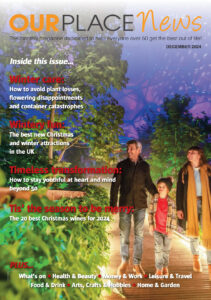You’re hired! Job hunting over 50: The do’s and don’ts
Recruitment expert Julie Measures offers some impartial, independent insights into the issues of job-hunting over 50, for those who may be struggling to find new positions in this difficult economic climate.
 Applying for a job can be a scary prospect and in the current job market it is true that yes, often older candidates have to work harder to overcome barriers, and no, it’s not fair. But that doesn’t mean every employer is determined to shut out all candidates over 35. Figures from the Office for National Statistics show that nationally the job market is improving, with more jobs becoming available for job hunters. There are, however, some key points that people over 50 should take note of when applying for work:
Applying for a job can be a scary prospect and in the current job market it is true that yes, often older candidates have to work harder to overcome barriers, and no, it’s not fair. But that doesn’t mean every employer is determined to shut out all candidates over 35. Figures from the Office for National Statistics show that nationally the job market is improving, with more jobs becoming available for job hunters. There are, however, some key points that people over 50 should take note of when applying for work:
1. Have a relevant CV
Cramming too much information onto your CV is a big mistake. It’s important to clear the clutter and remove information irrelevant or unspecific to the position for which you are applying. You should instead adjust your CV to each job every time, to show you have relevant experience. A couple of pages and 12 years’ relevant experience is more than enough to sell yourself to an employer.
2. Use your age to your advantage
Age can be a useful tool when applying for jobs because it implies experience. With age comes dependability, wisdom, fortitude, a strong work ethic, dedication, promptness, a wealth of knowledge, resilience, plus organisational and communication skills. You may also have good customer service skills and be able to advise and train younger staff. For employers your past track record is the best indicator of your future performance, so think about key accomplishments throughout your career and use them to promote yourself.
3. Using contacts
Contacts and networking are invaluable in getting a job and it’s perfectly acceptable to get in touch with former co-workers, employers, school friends and other colleagues you may not have been in touch with for some time. Websites such as Facebook and LinkedIn have made finding them a much easier task. Even if it doesn’t immediately lead to a job, broadening your contacts is always a positive step on your career ladder – and you never know who you’ll be put in contact with.
4. Prepare for the interview
Practice is the key. If you haven’t been interviewed in a while, it’s important to practice and review your interview skills. It’s useful to find a relatively young professional (recruitment consultants fit this bracket well) and ask them to interview you and give you feedback. It’s important to listen and learn, as your interviewer will have more relevant interview experience in recent years than yourself.
5. Don’t have an attitude
Although it may be tempting, one of the most damaging things to do in an interview is acting as if you are too good to be interviewed by an interviewer who’s younger than you, or showing up with your own personal grudge or grievance. It’s easy to think “I’ve done it all before” and “it should be done a different way”, but if you really want the job these thoughts need to be left at home and you need to be fully focused on getting that job.
6. Embrace the internet
Computer skills and the ability to use the internet to get a job are becoming almost essential. And it’s crucial to take advantage of social media websites, such as Facebook, LinkedIn and Twitter. These social media platforms show that regardless of your age you are up with the latest technology. This will help you convince interviewers that you have the ability to work and interact with younger colleagues and excel in today’s constantly-changing workplace.
7. Feelings of being overqualified
Often when employers see candidates applying for a position below their experience level, questions immediately arise. So if you’re going for a position with a lower wage or responsibility than you’ve had in previous jobs, it’s up to you to explain in your covering letter and the interview why this is. For example: “What is most important to me in at this stage of my life is having the ability to work in a company where there are outstanding opportunities, and where I believe my relevant skills and experience will make a real impact.”
However if being overqualified for a position is really a pill that you can’t swallow, there are alternatives such as targeting non-profit organisations where your experience will make a significant impact, or applying to small companies that are looking to expand and could use your expertise to do so. The public sector also uses application forms that ensure equality – so older candidates have as good a chance of getting their foot in the door as any other candidate.
8. Think temporary as well as permanent
Don’t dismiss temporary work while you are looking for a permanent position. Many people find permanent positions by starting off working for a company as a temp. It gives a company the chance to get to know you and you can demonstrate all the advantages your experience can bring to them.
(Article source: Saga)

